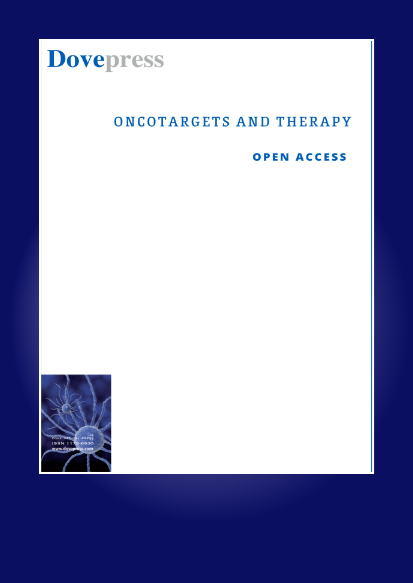通过血管内支架-反向栓塞切除术成功再通畅并恢复癌性栓塞性脑梗塞的神经功能
IF 2.7
4区 医学
Q3 BIOTECHNOLOGY & APPLIED MICROBIOLOGY
引用次数: 0
摘要
摘要:机械取栓术已成为治疗大血管闭塞引起的急性缺血性中风的一种很有前途的方法。然而,在血管内栓子切除术中取出癌栓的病例并不多见。我们报告了一例 65 岁男性患者的病例,该患者曾患重度直肠癌,因转移性腺癌导致大脑中动脉(MCA)梗死。患者突然出现右侧肢体无力、右侧面部麻痹、全面性失语和左侧目光偏离,美国国立卫生研究院卒中量表(NIHSS)评分为16分。静脉溶栓后,患者接受了血管内血栓切除术,血栓几乎完全再通。对取出的血栓进行病理检查后发现是直肠转移性腺癌。患者的神经功能障碍逐渐改善,并顺利出院接受进一步的姑息治疗。本病例强调,对于出现急性缺血性卒中的晚期实体器官恶性肿瘤患者,即使病因可能是肿瘤栓子,也应考虑进行机械取栓术。我们的研究结果强调了机械性血栓切除术在此类病例中恢复神经功能的潜力,使患者能够在中风后生活质量相当好的情况下进行下一步治疗。 关键词:机械性血栓切除术、血行播散、脑血栓、缺血性中风、大血管阻塞、血管内栓子切除术本文章由计算机程序翻译,如有差异,请以英文原文为准。
Successful Recanalization and Neurological Restoration in Cancerous Embolic Cerebral Infarction via Endovascular Stent-Retriever Embolectomy
Abstract: Mechanical thrombectomy has emerged as a promising treatment for acute ischemic stroke caused by large vessel occlusion. However, cases involving cancerous emboli retrieved during endovascular embolectomy are rare. We present a case of a 65-year-old man with a history of heavily treated rectal cancer, who developed a middle cerebral artery (MCA) infarction due to metastatic adenocarcinoma. The patient presented with sudden onset right-side weakness, right facial palsy, global aphasia, and left gaze deviation, with a National Institutes of Health Stroke Scale (NIHSS) score of 16. Following intravenous thrombolysis, endovascular thrombectomy was performed, achieving nearly complete recanalization. Pathological examination of the retrieved thrombus revealed metastatic adenocarcinoma of rectal origin. The patient’s neurological deficits gradually improved, and he was successfully discharged to undergo further palliative therapy. This case underscores the importance of considering mechanical thrombectomy for patients with advanced solid organ malignancy presenting with acute ischemic stroke, even when the etiology could be a tumor embolus. Our findings highlight the potential for mechanical thrombectomy to restore neurological function in such cases, allowing patients to proceed to the next level of care with a reasonably good post-stroke quality of life.
Keywords: mechanical thrombectomy, hematogenous spread, cerebral thrombosis, ischemic stroke, large vessel obstruction, endovascular embolectomy
Keywords: mechanical thrombectomy, hematogenous spread, cerebral thrombosis, ischemic stroke, large vessel obstruction, endovascular embolectomy
求助全文
通过发布文献求助,成功后即可免费获取论文全文。
去求助
来源期刊

OncoTargets and therapy
BIOTECHNOLOGY & APPLIED MICROBIOLOGY-ONCOLOGY
CiteScore
9.70
自引率
0.00%
发文量
221
审稿时长
1 months
期刊介绍:
OncoTargets and Therapy is an international, peer-reviewed journal focusing on molecular aspects of cancer research, that is, the molecular diagnosis of and targeted molecular or precision therapy for all types of cancer.
The journal is characterized by the rapid reporting of high-quality original research, basic science, reviews and evaluations, expert opinion and commentary that shed novel insight on a cancer or cancer subtype.
Specific topics covered by the journal include:
-Novel therapeutic targets and innovative agents
-Novel therapeutic regimens for improved benefit and/or decreased side effects
-Early stage clinical trials
Further considerations when submitting to OncoTargets and Therapy:
-Studies containing in vivo animal model data will be considered favorably.
-Tissue microarray analyses will not be considered except in cases where they are supported by comprehensive biological studies involving multiple cell lines.
-Biomarker association studies will be considered only when validated by comprehensive in vitro data and analysis of human tissue samples.
-Studies utilizing publicly available data (e.g. GWAS/TCGA/GEO etc.) should add to the body of knowledge about a specific disease or relevant phenotype and must be validated using the authors’ own data through replication in an independent sample set and functional follow-up.
-Bioinformatics studies must be validated using the authors’ own data through replication in an independent sample set and functional follow-up.
-Single nucleotide polymorphism (SNP) studies will not be considered.
 求助内容:
求助内容: 应助结果提醒方式:
应助结果提醒方式:


